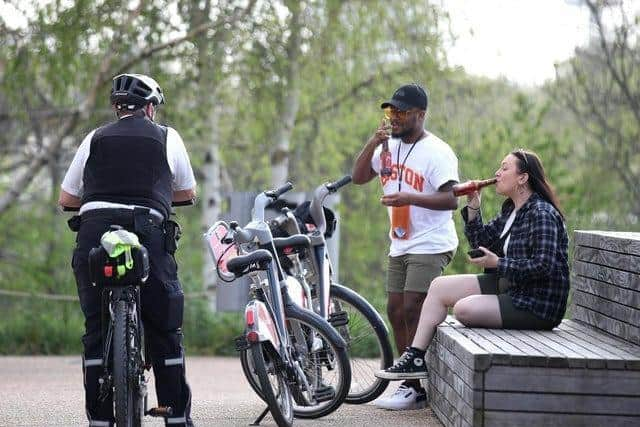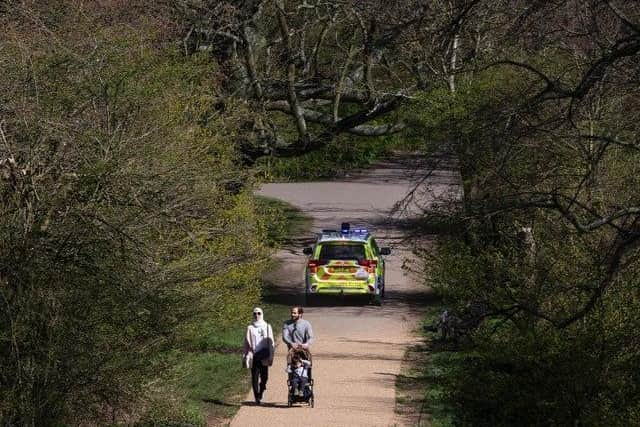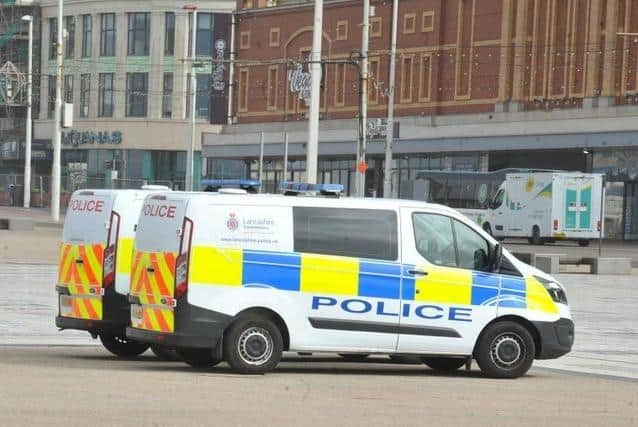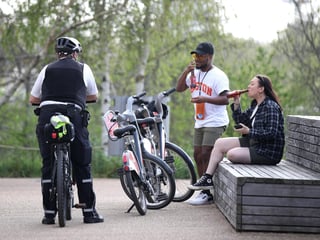This is everything the police say you can and can't leave the house for during lockdown
and live on Freeview channel 276
The lockdown rules have finally been made clear with the publication of a new, easy-to-follow guide from the CPS (Crown Prosecution Service).
The guidance has been issued to police officers after some forces were criticised for being 'overzealous' in issuing fines.
Advertisement
Hide AdAdvertisement
Hide AdIn Lancashire, police have handed out more fines than any other of the 42 forces in England, with 380 issued so far - more than 10 per cent of the country's total.


Regulation 6 of the The Health Protection (Coronavirus, Restrictions) (England) Regulations 2020 states no person may leave the place where they live without a reasonable excuse.
This new guide makes it clear what might and what might not constitute a ‘reasonable excuse’.
A CPS spokesman said: "Some public statements made soon after the adoption of the Regulations suggested that members of the public could only leave their homes if ‘essential’ to do so.


Advertisement
Hide AdAdvertisement
Hide Ad"However, this is not the test set out in the Regulations and there is no legal basis for a requirement in those terms to be imposed.
"The applicable threshold is that of ‘reasonable excuse’."
This list is not exhaustive and officers are required to use their discretion and judgement in deciding what is and what isn’t ‘reasonable’ in the circumstances.


This is everything you can and can't do during lockdown...
NECESSITIES
Allowed (Likely to be reasonable)
- Buying several days’ worth of food, including luxury items and alcohol.
- Buying a small amount of a staple item or necessity (e.g. a newspaper, pet food, a loaf of bread or pint of milk).
- Collecting surplus basic food items from a friend.
- Collecting surplus basic food items from a friend.
Not allowed (Not likely to be reasonable)
- Buying paint and brushes, simply to redecorate a kitchen.
This is why...
Advertisement
Hide AdAdvertisement
Hide AdThere is no need for all a person’s shopping to be basic food supplies; the purchase of snacks and luxuries is still permitted.
In general terms, a person has a reasonable excuse to visit the shops which remain open to customers under the Regulations.
If a person is already out of the address with good reason, then it would not be proportionate to prevent the person from buying nonessential items.
Food could include hot food from takeaways.
‘Obtain’ includes purchasing, but could include collecting or sharing items, provided this is genuine.
Advertisement
Hide AdAdvertisement
Hide AdRegarding DIY - The regulations specify maintenance and upkeep. This does not extend to renovation and improvements.
EXERCISE
Allowed
- Including: going for a run or cycle or practicing yoga. Walking in the countryside or in cities. Attending an allotment.
- Driving to countryside and walking (where far more time is spent walking than driving).
- Stopping to rest or to eat lunch while on a long walk.
- Exercising more than once per day - the only relevant consideration is whether repeated exercise on the same day can be considered a ‘reasonable excuse’ for leaving home.
Not allowed
- Driving for a prolonged period with only brief exercise.
Advertisement
Hide AdAdvertisement
Hide Ad- A short walk to a park bench, when the person remains seated for a much longer period.
This is why...
Exercise can come in many forms, including walks.
Exercise must involve some movement, but it is acceptable for a person to stop for a break in exercise.
However, a very short period of ‘exercise’ to excuse a long period of inactivity may mean that the person is not engaged in ‘exercise’ but in fact something else.
It is lawful to drive for exercise.
WORK
WORK
Allowed
- A key worker or other essential worker travelling to work where it is not reasonably possible to work from home.
Advertisement
Hide AdAdvertisement
Hide Ad- A non-key worker or non-essential key worker travelling to work where it is not reasonably possible to work from home.
- A person delivering food packages to vulnerable people.
Not allowed
- A person who can work from home choosing to work in a local park.
- A person knocking on doors offering to do cash-in-hand work.
This is why...
There is no requirement to be a key worker or essential worker in order to travel to work.
Advertisement
Hide AdAdvertisement
Hide AdAnyone can travel to work if it is not reasonably possible to work from home.
A request from an employer to attend the work place should be sufficient.
But there is no requirement for the person to have any written proof of a need to go to work or volunteering.
Police should not ask for ID documents or any other kind of document.
Advertisement
Hide AdAdvertisement
Hide AdThere is no requirement for volunteers to work for a registered organisation or charity.
There is no requirement for the volunteering to be related to COVID-19.
OTHER REASONS
Allowed
- Taking an animal for treatment.
- Moving to a friend’s address for several days to allow a ‘cooling-off’ following arguments at home.
- Providing support to vulnerable people.
Not allowed
- Visiting a vet’s surgery in person to renew a prescription (where this could be done over the phone).
Advertisement
Hide AdAdvertisement
Hide Ad- Visiting a friend in their address or meeting in public to socialise.
This is why...
Vet’s surgeries remain open and so taking an animal for emergency treatment would qualify as a good reason (as the owner has a duty to preserve welfare). But visiting a vet’s surgery where a call would suffice would not be reasonable.
The Regulations allow people to move house. This means that individuals can move between households. But this should be a genuine move (i.e. measured in days, not hours).
Social visits are not generally a good reason to leave home. However, there may be exceptional circumstances for a person to visit another (eg, a hospital authorising a particular person to visit).
